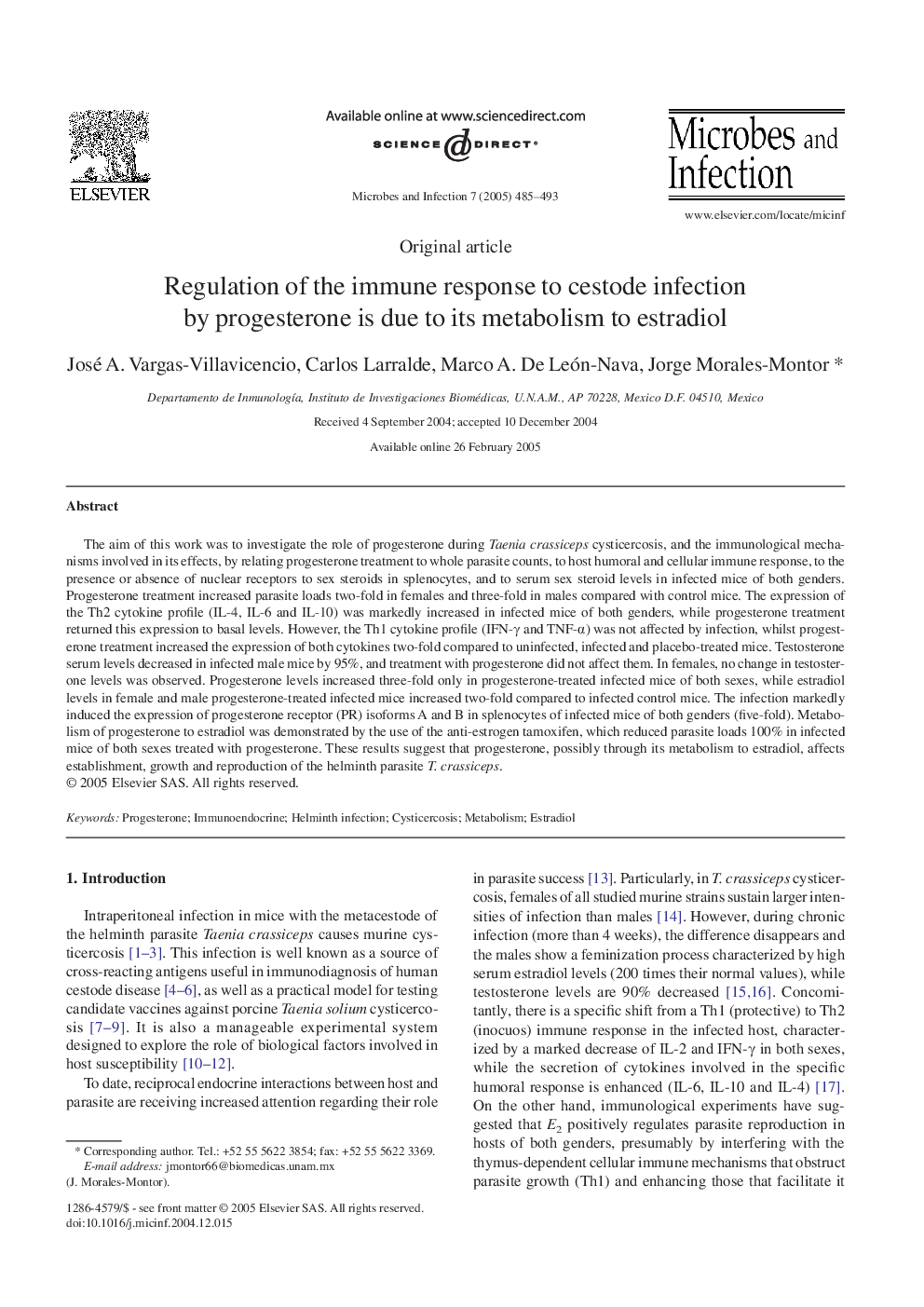| Article ID | Journal | Published Year | Pages | File Type |
|---|---|---|---|---|
| 9283001 | Microbes and Infection | 2005 | 9 Pages |
Abstract
The aim of this work was to investigate the role of progesterone during Taenia crassiceps cysticercosis, and the immunological mechanisms involved in its effects, by relating progesterone treatment to whole parasite counts, to host humoral and cellular immune response, to the presence or absence of nuclear receptors to sex steroids in splenocytes, and to serum sex steroid levels in infected mice of both genders. Progesterone treatment increased parasite loads two-fold in females and three-fold in males compared with control mice. The expression of the Th2 cytokine profile (IL-4, IL-6 and IL-10) was markedly increased in infected mice of both genders, while progesterone treatment returned this expression to basal levels. However, the Th1 cytokine profile (IFN-γ and TNF-α) was not affected by infection, whilst progesterone treatment increased the expression of both cytokines two-fold compared to uninfected, infected and placebo-treated mice. Testosterone serum levels decreased in infected male mice by 95%, and treatment with progesterone did not affect them. In females, no change in testosterone levels was observed. Progesterone levels increased three-fold only in progesterone-treated infected mice of both sexes, while estradiol levels in female and male progesterone-treated infected mice increased two-fold compared to infected control mice. The infection markedly induced the expression of progesterone receptor (PR) isoforms A and B in splenocytes of infected mice of both genders (five-fold). Metabolism of progesterone to estradiol was demonstrated by the use of the anti-estrogen tamoxifen, which reduced parasite loads 100% in infected mice of both sexes treated with progesterone. These results suggest that progesterone, possibly through its metabolism to estradiol, affects establishment, growth and reproduction of the helminth parasite T. crassiceps.
Related Topics
Life Sciences
Immunology and Microbiology
Immunology
Authors
José A. Vargas-Villavicencio, Carlos Larralde, Marco A. De León-Nava, Jorge Morales-Montor,
